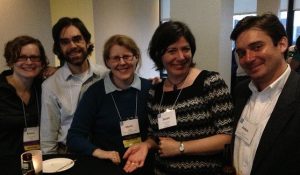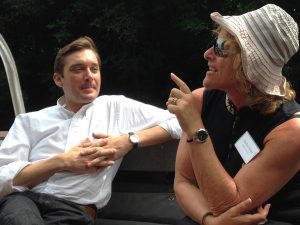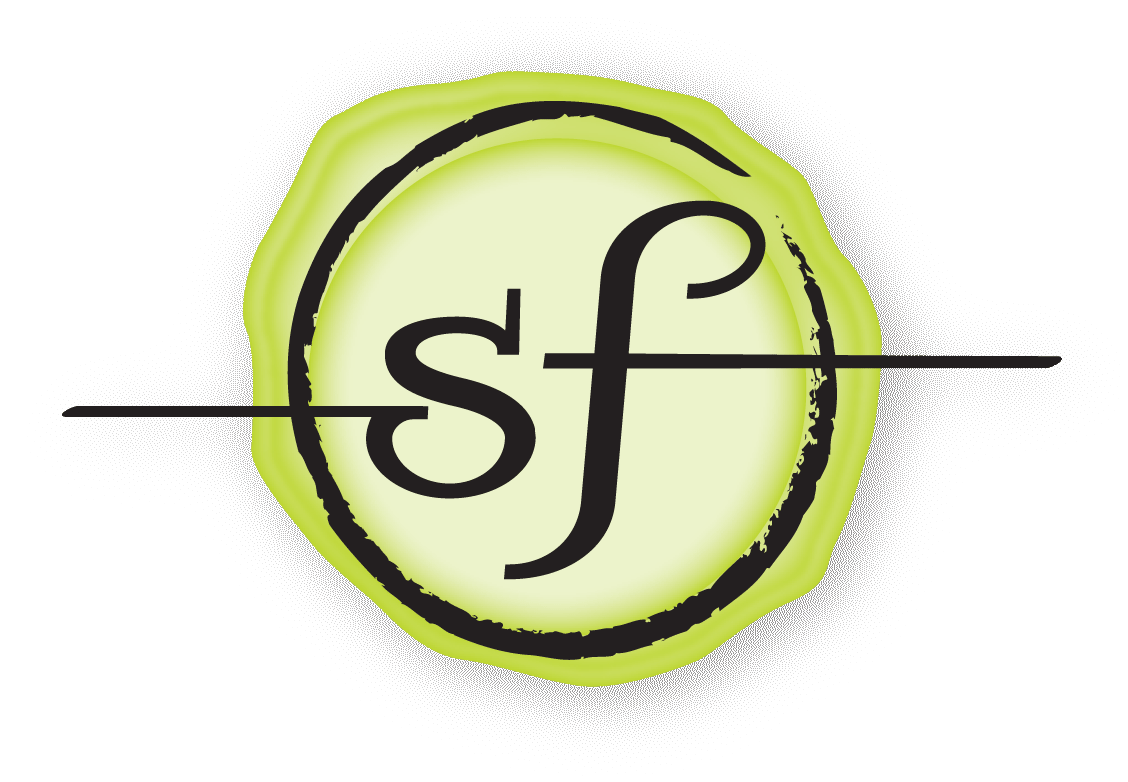A few weeks ago, the public history profession unexpectedly lost one of our own. Aidan J. Smith, public history manager for the Organization of American Historians, died in his sleep on April 23, 2018, at the age of thirty-seven.

I met Aidan about nine years ago when he came to work at the Journal of American History, the journal of the Organization of American Historians (OAH), where I was working at the time. Two years later, when I was leaving my position as the founding OAH public history manager, Aidan was selected to move into this position. Turning over the reins of a position I had filled for ten years was emotionally difficult for me, but Aidan made the task much easier with his characteristic charm and sincere respect for others. He listened intently; he gallantly stuck with me through the occasional tears that cropped up while I was training him; and, by the end of our transition period, he sent me off on my new adventure (starting this consulting practice) with the confidence that the OAH’s work in public history was in competent hands.
We continued to keep in contact, being two of a limited number of public historians living in southern Indiana. In the last couple years, we had even begun to collaborate on a few projects. And, oddly, in the last three weeks of his life, our paths crossed all over the country. He was present at the workshop I gave in early April in Washington, DC. He was in Sacramento at the OAH conference, as all staff of that organization play a huge role in pulling off its annual conference. And he was in Las Vegas, as was I and most of our professional colleagues, for the National Council on Public History conference. He arrived back to Indiana the day before me; two days later, he had inexplicably left us.

Frankly, I’m still in denial. I have agreed to assist the OAH over the summer in keeping the collaboration with the National Park Service (Aidan’s major job duty) moving forward until they can find an appropriate person to fill the position and get her trained. I am taking over projects; I am sorting through his emails, and still I find myself at every turn thinking, “Oh, I can’t wait to ask Aidan about this project.” “Man, I’d love to hear the story with this one.” Then it strikes me. I’ll never again get to dish with Aidan about the job we both loved and devoted a big part of our career to; I’ll never again get to indulge myself by regaling him with stories (he was such a good listener); I’ll never again to toss ideas around with him. None of us will. And that is a terrible loss for our field.
You can read his obituary here and another public history tribute to him on the History @Work blog.
